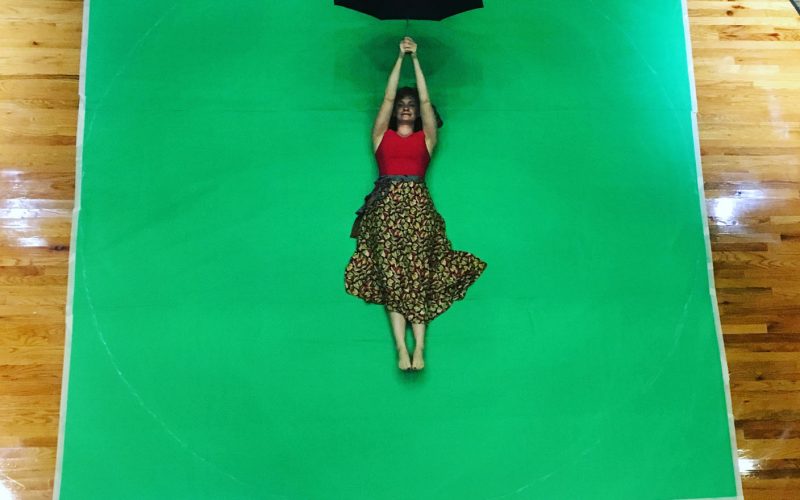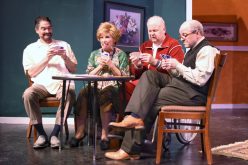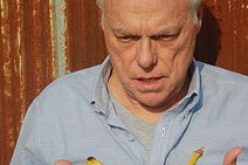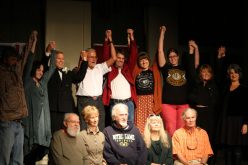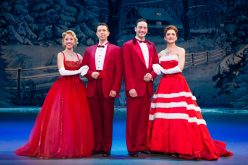Artists, chefs trade roles in ‘Sensory Iconoclasts’
BECCA MARTIN-BROWN
NWA Democrat-Gazette

Courtesy Photo
Sara Segerlin of Crystal Bridges Museum and Paula Henry of Crepes Paulette collaborated on a film illustrating the dance of crepes for this year’s “Sensory Iconoclasts” project.
This year marks the fifth “Sensory Iconoclasts” project at the Arts Center of the Ozarks, and “Case and I wanted to ‘switch’ up roles this year,” says Eve Smith, ACO director of visual arts and founder of the event with chef Case Dighero.
The only exhibit of its kind in Northwest Arkansas, “Sensory Iconoclasts” pairs a Northwest Arkansas chef with an area artist and asks them to collaborate on a theme: This year’s was “Transposed.”
“With all the divisiveness in our country at the moment,” Smith says, “we decided to give an opportunity to let everyone see through the art world’s eyes that it’s easy to try and put yourself in someone else’s shoes. So this year, the chef will create in the medium of their partner and the artisan will cook!”
“This year Eve and I completely embedded ourselves into the other’s medium,” adds Dighero, who is director of culinary services at Crystal Bridges Museum of American Art. ” I invited her into my kitchen, and we created a barbecue recipe that started with traditional, archetypal base ingredients and incorporated our own preferences in design to create something very stylized, singular… We then turned to the canvas in using the same techniques for mentorship by blurring the lines between paints and mise en place to create our painting.
“Truly, both end products were intrinsically collaborative in nature: she had her hands in the creation of my painting and I had my hands in the design of her barbecue sauce. At times during both processes it felt a bit like we were members of a jazz band creating an impromptu sound – we were both exhilarated.”
Sara Segerlin, adult public programs manager at Crystal Bridges, reconnected with her partner of five years ago, Paula Henry of Crepes Paulette.
“With the role reversal, Paula and I focused the collaboration on the idea process and language,” Segerlin explains. “We each spoke our own language when it comes to describing our creative views on film, dance and crepe-making. We were looking for how we could communicate crepe movements into dance, which is a language I could understand better than a recipe. Paula begin to think like a filmmaker or choreographer about her crepes — seeing her griddle as a canvas or dance stage, and in turn I became her crepe dancer to manipulate and shape.
“Learning the process of a crepe is where we began to merge what we see into magical shapes and patterns that led to our short film ‘La Fée de la Crêpière,’” she adds. “Our film is a a result of learning the process.”
“Eve and Case wanted to shake up, wake up those of us involved — to challenge us to reach a bit more than usual, leave our comfort zones, and prove that creativity can thrive when boundaries are removed,” Henry agrees. “Though we did rely on each other’s respective technical skills, our goal was to respect those guidelines and see where it would lead us.”

Courtesy Photo
Sara Segerlin of Crystal Bridges Museum and Paula Henry of Crepes Paulette collaborated on a film illustrating the dance of crepes for this year’s “Sensory Iconoclasts” project.
Henry and Segerlin discovered the same thing Smith and Dighero did: “It seems that being creative in a public way — be it in a gallery exhibit or a restaurant — requires a similar boldness, or willingness to accept examination, scrutiny, or even judgment,” Henry says.
“When Case and I met, it really opened my mind to the fact that we actually work in the same manner,” Smith says. “All of the ingredients were arranged in almost the same way I go about painting. It was easy for me to look at cooking with this reciprocated experience of adding and subtracting until I get a final version I’m happy with.”
“Even the process of developing an idea into a plan, then physically using touch, sight, smell, and taste to paint or cook – I loved the similarities in our modes of design,” Dighero agrees.
“‘Sensory’ has really built up a collaborative spirit within my career and artistry that was never there before,” Smith says. “I really think our work exhibits both of our ‘hands’ — at least I hope the viewer will be able to see that.”

